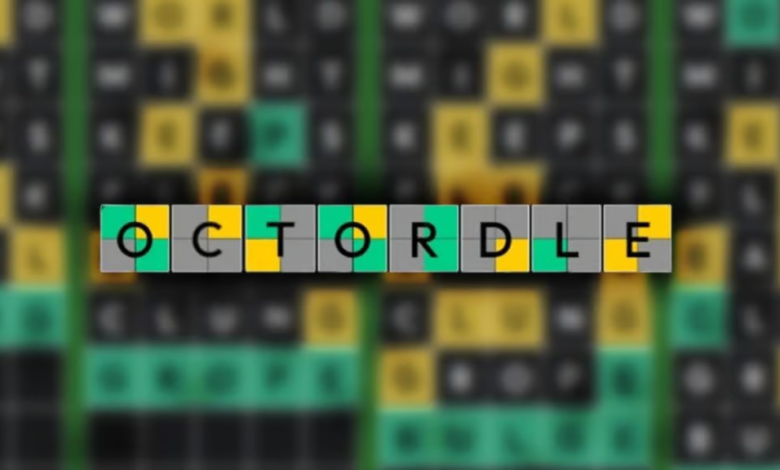Octordle Hint: A Comprehensive Guide to Mastering the Game

Introduction
Octordle has emerged as one of the most intriguing word puzzle games, taking the concept of Wordle to a whole new level. Unlike Wordle, where players guess a single five-letter word within six attempts, Octordle challenges players to solve eight five-letter words simultaneously. With 13 attempts to find all eight words, the game requires strategic thinking, careful planning, and a bit of luck.
Here’s a bio table for a player who is interested in Octordle, showcasing their key attributes, gaming style, and preferences:
| Attribute | Details |
|---|---|
| Name | Octordle Master |
| Preferred Starting Words | “ADIEU” and “CRANE” |
| Favorite Strategy | Two-word strategy covering vowels and common consonants, with a focus on letter distribution and pattern recognition. |
| Gameplay Style | Strategic and Analytical – emphasizes logic, deduction, and careful planning. |
| Strengths | Strong vocabulary, pattern recognition, deductive reasoning, and multi-tasking. |
| Weaknesses | Can get overwhelmed by too many possibilities or stuck on uncommon words. |
| Favorite Word Games | Octordle, Wordle, Quordle, and Crossword Puzzles. |
| Average Success Rate | Solves all 8 words in Octordle within 12-13 attempts 70% of the time. |
| Biggest Challenge | Managing eight grids simultaneously without losing track of progress on any one board. |
| Goals | Improve accuracy in fewer guesses and enhance speed-solving capabilities. |
Understanding the Basics of Octordle
Before diving into hints and strategies, it’s essential to understand the core mechanics of the game. Octordle is played on a grid where each row represents an attempt, and each column represents a different word puzzle. Here are the basic rules:
Eight Simultaneous Words: You are working on eight different word puzzles at the same time.
13 Attempts: You have 13 chances to guess all eight words correctly.
Color-Coding: Similar to Wordle, Octordle uses a color-coded feedback system:
- Green: The letter is in the correct position.
- Yellow: The letter is in the word but in the wrong position.
- Gray: The letter is not in the word at all.
Shared Input: Every guess you make applies to all eight puzzles. This means each guess can provide information for multiple words simultaneously.
Essential Strategies for Octordle
Start with a Balanced Guess:
Begin with a word that includes a variety of common vowels (like “A,” “E,” “I,” “O,” “U”) and consonants (such as “R,” “T,” “N,” “S,” “L”). This will help you get a sense of which letters are present in each word across all eight grids. A good starting word is “ADIEU” because it covers four out of the five vowels.
Focus on Common Letters First:
Concentrate on letters that are most frequently found in English words. Using words that cover common consonants like “R,” “S,” “T,” “L,” and “N” can help you rule out or confirm these letters’ positions.
Avoid Repeating Incorrect Letters:
Once you know a letter is not part of a word (indicated by gray), try not to reuse that letter in future guesses. Repeating incorrect letters wastes valuable attempts.
Balance Exploration and Confirmation:
While exploring new letters, balance it with confirming the positions of the letters already identified. If a letter is marked yellow, try to determine its correct position in the following attempts.
Keep Track of Your Progress on Each Board:
Because you are solving eight words at once, it is easy to lose track. Regularly review each word board to keep your strategy aligned. Focus on words that have more letters identified, as these are easier to complete.
Use Deductive Reasoning:
Deduce what letters fit the remaining slots based on the letters you have identified and ruled out. Think of possible combinations and use logic to narrow down the choices.
Conserve Guesses for Difficult Words:
If a word seems particularly tricky or has a combination of uncommon letters, conserve your guesses for when you have more information. Early in the game, prioritize words that are easier to solve.
Helpful Hints for Octordle
Utilize Word Patterns: Sometimes, focusing on possible word patterns (such as “LATE” or “TH_“) can help narrow down your guesses quickly.
Stay Calm Under Pressure: With eight boards and 13 guesses, it’s easy to feel overwhelmed. Take your time and think each guess through carefully.
Pay Attention to Letter Distribution: After a few guesses, you’ll notice certain letters appearing more frequently in the yellow or green spaces. This can guide your future guesses.
Advanced Tips for Experienced Players
Cross-Reference Across Boards: When you identify a letter that’s correct in one board, look at other boards where it might also fit. This cross-referencing can give you clues for multiple boards in a single guess.
Develop a Two-Word Strategy: Consider starting with two different words that complement each other, covering all five vowels and most common consonants. For example, “CRANE” and “SLUMP” combined cover a wide range of letters and give a strong foundation for narrowing down the words.
Recognize Common Word Families: Words often belong to families that have similar structures, such as “BREAD,” “TREAD,” “FREAD.” Recognizing these patterns can help solve words faster when you know a few letters.
Use Process of Elimination: By mid-game, you’ll have a good idea of which letters are in play for each word. Start using elimination techniques to filter out improbable letter combinations, focusing on only those that make logical sense.
Conclusion
Octordle is a challenging and stimulating word puzzle game that requires patience, strategy, and keen observation. Unlike Wordle, Octordle’s complexity increases exponentially with eight boards to solve, but this also makes it more rewarding. By using these hints and strategies, players can improve their gameplay, solve words more efficiently, and enjoy the mental challenge that Octordle offers. Remember, practice makes perfect, so keep playing and refining your strategies!
Happy Octordling!
Also Read This: Snokido: A Hub for Online Flash Games



